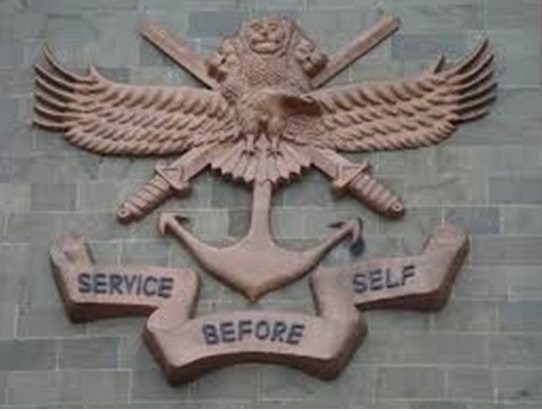Career Information
MASS COMMUNICATION AND JOURNALISM
In the recent years we have witnessed an unprecedented growth in the world of communication. With the increase in the number of television sets, news channels, radio stations, advertising and so much more each growing day, the field seems to be transcending into an unmatched growth and along with it the option of its pursuers to have a dynamic career.
The rise of new media has created a whole range of new possibilities, and profiles such as Disc Jockeys or Radio Jockeys are not so unusual. A degree in mass communication opens up opportunities in Journalism, Public relations and advertising, as a career. But remember a solid command over the language is crucial for success
DIFFERENCE BETWEEN MASS COMMUNICATION AND JOURNALISM
There may not be clear cut differences between the two but Journalism is more bent towards news reporting for newspapers, magazines or television, while mass communication is a much broader field encompassing radio, graphics, films, television, online media, documentary, events, advertising, corporate communications and so on.
ELIGIBILITY CRITERIA FOR MASS COMMUNICATION COURSES
Although the eligibility criteria will vary from college to college but mostly depend on the below mentioned factors:
- Undergraduate courses: Mostly undergraduate courses only required the successful completion of Class XII from any board in any stream. Entrance to top institutes is through entrance exam.
- Post Graduate courses: A postgraduate course would require the candidate to be below 30 years of age and the completion of a Bachelors degree in any discipline or in BJMC
JOB PROSPECTS
The job requires the aspirants to be skillful, energetic, excellent communicatorand also creative. Following are the various job profiles offered to graduates in mass communication with one specialized field.
- Sound Engineer
- Film Director
- Public Relations Officer
- Sound Mixer and Sound Recorder
- Special Correspondent
- TV Correspondent
- Producer
- Radio Jockey/ RJ
- Screenwriter
- Art Director
- Editor
- Event manager
- Video Jockey
- Fashion Photographer Cartoonist
- Illustrator
- Critic
- Photojournalist
Also on completing their graduation in Mass Communication the aspirants of the field can look forward to working with the following types of companies and areas
- AIR - All India Radio
- Circulation and Public Relations
- Central Information Service
- Legal Affairs Department
- Journal
- News Agencies
- Press Information Bureau
- Photography Companies
- TV Channels
- Radio Telecasting Companies
- Websites Periodicals and Magazines
- Newspapers
- Advertising Agencies
- Books and Novels
- Blogs
- Broadcasting Corporations
TOP INSTITUTES TO PURSUE MASS COMMUNICATION IN INDIA
- Symbiosis Institute of Mass Communication, Pune
- AJK Mass Communication Research Centre, JamiaMilliaIslamia, New Delhi
- Indian Institute of Mass Communication, New Delhi
- Asian College of Journalism, Chennai
- MakhanlalChaturvedi National University of Journalism and Communication, Bhopal
- Xavier Institute of Communication (XIC), Mumbai
- Indian Institute of Journalism and New Media, Bangalore
FOOD ENGINEERING
SPECIAL EFFECT ARTIST
COMPUTER APPLICATION AND IT
COMPUTER APPLICATION AND IT
Computer applications and IT field encompasses activities including design, development and analysis of programming languages, computer applications and computer hardware which are used in various domains including business operations, calculations , data storage, and research etc..Information technology is the use of computers to store, retrieve, transmit, and manipulate data, or information.
Education requirement –12th non medical or 12th any stream with mathematics or computer science or B tech diploma in computer science/EEC after 10
What are the various job roles in Computer Application?
Software developer will be involved in creating computer programs which perform various tasks. It includes planning and designing of software, coding, testing, debugging and maintenance.
Information system managers are involved in the process of implementing information technology and oversee IT professionals in the organisation. Their role encompasses different tasks including installations,information system planning and maintaining of hardwares and softwares etc.
A network manager is responsible for installing and maintaining the company's computer networks, and also for training staff to provide first rate technical support.
Application developer is someone who creates, tests and programs applications software for computers and mobile phones.
A web developer specialises in designing and creating websites and webpages by using languages like HTML, CSS,JAVA, PYTHON etc.
Cyber Security officers check and analyse the vulnerabilities in cyber system for the possibilities of hacking and other cyber crimes. They take remedial actions against possible cyber attacks.
Main Admission/Entrance exams
Name of Exam |
Institutions |
Languages |
Application Period |
Exam Dates |
Website |
|
Jamia Millia Islamia entrance test. |
Jamia Millia Islamia |
English |
March - April |
May Last week |
|
|
AMU Admission Test |
Aligarh Muslim University |
English , Hindi |
January- February |
April First Week |
|
|
Christ Entrance Test |
Christ University Bangalore |
English |
December- April |
December- April |
|
|
PU CET UG |
Punjab University |
English |
April |
May first week |
|
|
Jain entrance test(Jet) |
Jain University |
English |
November |
April last week |
|
|
Postgraduate - (PG) |
|||||
|
UoH entrance test |
Hyderabad Central University |
English |
April |
May last week |
|
|
Manipal MCA Entrance Test |
Manipal University |
English |
April-May |
June |
|
|
Jamia Millia Entrance Test |
Jamia Millia Islamia |
English |
March - April |
June |
|
|
BHU MCA PET |
Banaras Hindu University |
English |
February - March |
Second Week of June |
|
|
CUSAT Aptitude Test |
CUSAT |
English |
January- February |
April |
|
Criminology Courses
This term refers to scientifically studying the nature, causes, control and extent of criminal behavior. Such a behavior can be both of an individual or society. It is an interdisciplinary branch of the behavioral science, which is dealt, mainly, by the sociologists, psychiatrists and psychologists. The social anthropologists and the lawyers often get involved in this field as well. This is a research based subject, where the research areas include the forms, incidence, causes as well as results of a committed crime.
The different governmental and social regulations and the reaction towards any crime are even included within the purview of its area of research. The subject relies on the different quantitative methods for the study of the cause and distribution of crimes. In the year 1885, this term was coined as "Criminologia" by RaffaeleGarofalo, a famous law professor from Italy. However, after sometime, it was used as "Criminologie" by Paul Topinard, a renowned French anthropologist.
Current Scenario of Criminology Courses in India
In the present social scenario, this field has come forward as a challenging profession to the youths of this nation. Since, it deals with the cause and prevention of crime, the different courses related to this, help one in gaining knowledge about effectively identifying those causes and preventing measures. Nowadays, this is among the promising career options in the Republic of India. Students, who aspire to be a criminologist, need to have either a professional certificate or degree of criminology. Post acquiring such a degree, one can work as any of the following professionals:
• Crime investigators
• Crime laboratory analyst
• Crime scene analyst
• F.B.I. agents
• Forensic engineer
• Forensic surgeon
• Police officers
• Private detectives
Several professional institutions of the Indian Republic, nowadays, offer different courses on criminology and forensic science, which is a part of this field of study. Such courses are studied at both undergraduate and post graduate level. Some colleges even offer a doctoral degree of Ph. D. on this subject. Listed below are some of the popular most criminology courses offered by the various institutes, which are located at different parts of the country:
• Bachelor's degree in criminology
• Certificate course in criminology
• Diploma course in criminology
• Master's degree in criminology
• Post graduate or P.G. diploma in criminology .
Major Criminology Examinations in India
A candidate, who wishes to enroll him or herself in any of the above mentioned criminology courses are required to have qualified in the entrance examinations conducted by the respective institute, where one seeks admission.
The names of some of the popular criminology entrance examinations, which are conducted in different parts of the nation, are:
• B.H.U. or Banaras Hindu University M.Sc. or Master of Science Entrance Examination
• Bundelkhand University Master of Science Entrance Examination
• Common Entrance Test or C.E.T. for P.G. Diploma Courses
• Delhi University or D.U. Master of Science Entrance Examination
• Dr. Hari Singh GourVishwavidyalaya P.G. Entrance Test
• Karnataka University M.A. or Master of Arts in Criminology Entrance Examination
• National Law University's or N.L.U.'s National Entrance Test
• Osmania University M.Sc. Entrance Examination
• Punjabi University M.Sc. Criminology Entrance Examination
•M.U. or University of Madras Master of Arts Criminology Entrance Examination
Top Criminology Colleges in India
The Republic of India houses numerous colleges and institutions that are known for offering varied criminology courses. The below mentioned table provides the names along with the basic details about some of the reputed criminology institutions of India:
|
S. No. |
Name of the institution |
Contact Address |
|
1 |
L.N.J.N.N.I.C.F.S. or LokNayak Jayaprakash Narayan National Institute of Criminology and Forensic Science |
Outer Ring Road, Rohini, Sec. - III, Delhi - 110 085, India. |
|
2 |
B.H.U. or Banaras Hindu University |
Varanasi - 221 005, Uttar Pradesh, India. |
|
3 |
B.I.T.S., Pilani |
B.I.T.S. Pilani Professional Development Centre, No. - 1155, 1st Floor, 4th Cross, 12th Main, H.A.L. 2nd Stage, Indiranagar Bangalore - 08, Karnataka, India. |
|
4 |
B.U. or Bundelkhand University |
Jhansi, Uttar Pradesh, India. |
|
5 |
Dr. B.R. Ambedkar University |
Paliwal Park, Agra, Uttar Pradesh, India. |
|
6 |
Department of Criminology and Forensic Science, Dr. HarisinghGour University |
Sagar, Madhya Pradesh, India. |
|
7 |
Department of Studies in Criminology and Forensic Science, K.U. or Karnataka University |
Dharwad - 580 003, Karnataka, India. |
|
8 |
Forensic Sciences Department, University of Madras |
Forensic House, 30 A, KamarajarSalai, Mylapore, Chennai - 600 004, Tamil Nadu, India. |
|
9 |
Institute of Forensic Science |
Institute of Science Campus, 15, Madam Cama Road, Mumbai - 400 032, Maharashtra, India. |
|
10 |
University of Madras |
Chepauk, Chennai - 600 005, Tamil Nadu, India. |
DESIGN THINKING AS A CAREER

Design Thinking is an approach used for practical and creative problem-solving. It is based heavily on the methods and processes that designers use (hence the name), but it has actually evolved from a range of different fields — including architecture, engineering and business. Design Thinking can also be applied to any field; it doesn’t necessarily have to be design-specific
Who can choose this career?
Design thinking is not only for designers but also for creative employees, freelancers, and business leaders. It’s for anyone who seeks to infuse an approach to innovation that is powerful, effective and broadly accessible, one that can be integrated into every level of an organization, product, or service so as to drive new alternatives for businesses and society. Some of the world’s leading brands, such as Apple, Google, Samsung, and General Electric, have rapidly adopted the design thinking approach.
QUALIFICATION
- Graduate degree in any field.
- Diploma in UX Design/Certified usability analyst/User experience analyst.
Where to pursue the course??
Design thinking is being taught at leading universities around the world, including Stanford d.school, Harvard, and MIT.
Online certification is also available.
CAREER OPTIONS IN SPORTS
CAREER IN ARCHAEOLOGY
CAREER IN INTERNATIONAL RELATIONS
career in Entrepreneurship
About the course:
Entrepreneurship involves designing of business idea followed by launching and running a new business. Typically, it begins as a small business, such as a startup company. The business can involve offering a product, process or service for sale. The owners of such a venture are referred as ‘entrepreneurs’. Given the pace of development in the country, positive political environment and the myriad of opportunities; draw of youth to entrepreneurship has become rather magnetic. Life of an entrepreneur is extremely challenging. One needs to be hard-working, persistent, networked, smart, creative, willing to take risks and extremely good at managing relations.
There are no specific educational requirements for becoming an entrepreneur but strong educational background and work experience makes the probability of success slightly higher.

How to Become an Entrepreneur
|
Stream |
Graduation |
After Graduation |
After Post Graduation |
|
|---|---|---|---|---|
|
Path 1 |
Clear Class XII in Any stream |
Pursue Graduation BBA, B.Com, BBE or any commerce related field. |
Pursue MBA in entrepreneurship, HR, Finance, etc. |
- |
Leading Institutes in India
|
College |
Location |
Website |
|
IIM Ahmedabad |
Ahmedabad |
www.iima.ac.in/web/pgp/programme Copy |
|
IIM Calcutta |
Calcutta |
www.iimcal.ac.in Copy |
|
Indian School of Business |
Hyderabad |
www.isb.edu/management-programme-for-family-business Copy |
|
XLRI Jamshedpur |
Jamshedpur |
www.xlri.ac.in/resources/edc.aspx Copy |
|
S.P. Jain Institute of Management & Research |
Mumbai |
www.spjimr.org/syb Copy |
|
Narsee Monjee Institute of Management Studies |
Mumbai |
www.nmimssbm.org/academics/programs/mba-entrepreneurship-and-family-business Copy |
|
IIM Bangalore, NSRCEL |
Bangalore |
www.nsrcel.org Copy |
|
Management Development Institute (MDI) |
Gurgaon |
www.mdi.ac.in/research-and-consultancy/centers-of-excellence/center-for-entrepreneurship.html Copy |
|
National Institute for Entrepreneurship & Small Business Developmentξ |
Delhi |
www.niesbud.nic.in Copy |
|
Entrepreneurship Development Institute of India (EDI), Gandhinagar |
Gandhinagar |
www.ediindia.org Copy |
|
Xavier Institute of Management & Entrepreneurship (XIME) |
Bangalore |
www.xime.org Copy |
|
Ashoka University |
Sonepat |
www.ashoka.edu.in Copy |
Top Institutes in the world
|
Institution |
Location |
Website |
|
Harvard Business School |
Boston |
www.hbs.edu/mba/the-hbs-difference/Pages/entrepreneurship-and-innovation.aspx |
|
University of Michigan |
Michigan |
www.michiganross.umich.edu |
|
Graduate School of Stanford Business |
California |
www.gsb.stanford.edu/programs/mba |
|
Brigham Young University |
Provo |
www.home.byu.edu/home |
|
University of Chicago |
Chicago |
www.chicagobooth.edu |
|
University of Houston |
Houston |
www.bauer.uh.edu/graduate-studies |
|
London Business School |
Marylebone, London |
IPS(INDIAN POLICE SERVICES)
FASHION COMMUNICATION AS A CAREER
SUPPLY CHAIN MANAGEMENT
Supply Chain Management
Supply Chain is used to meet the customer demand of product or service there is a chain of processes involved right from the procedures end like Sourcing, Distribution, Warehouse, inventories etc and managing those processes effectively, and efficiently can be called as Supply Chain Management. It seems to be very gainful which has a big potential in India and companies looking to hire SCM professionals as they are the ones who will drive the business in the future. It is all about planning, procuring, handling, managing, engineering and enabling the goods and services that are essential for the nation. They are purchasers and transportation planners and bring warehouses and distributors settings to live. They conceive, design and deliver all the items like food, water, goods to customers on time, and in perfect condition. During the job, they face different challenges every day. The sector is continuously shifting and evolving with changing needs of people and technology. Hence, there is diverse in the careers in supply change management.
Career Opportunities
- E-commerce sector
- Auto motive sector and Manufacturing sector
- Aerospace and Defence sector
- Consumer product and retail sector
- Healthcare sector?
Qualification Required
Graduate with any stream with diploma in Supply Chain Management.
|
College |
Location |
Website |
|
Indian Institute of Management |
Multiple |
www.iimcal.ac.in/ldp/APSCM Copy |
|
Indian School of Business |
Multiple |
www.isb.edu Copy |
|
Faculty of Management Studies (FMS) |
Mumbai |
www.fms.edu Copy |
|
XLRI Xavier Institute of Management |
Jamshedpur |
www.xlri.ac.in Copy |
|
S. P. Jain Institute of Management & Research (SPJIMR) |
Mumbai |
www.spjimr.org Copy |
|
Management Development Institute (MDI) |
Gurgaon |
www.mdi.ac.in/research-and-consultancy/centers-of-excellence/center-for-supply-chain-management.html Copy |
|
Department of Management Studies (DMS), Indian Institute of Technology Delhi (IITD) |
Delhi |
www.dms.iitd.ac.in/ Copy |
|
Indian Institute of Foreign Trade (IIFT), New Delhi |
Delhi |
www.iift.edu Copy |
|
Narsee Monjee Institute of Management Studies (NMIMS), Mumbai |
Mumbai |
www.nmims.edu Copy |
|
Indian Institute of Technology Madras (IITM) |
Chennai |
www.iitm.ac.in |
ASPIRE TO JOIN INDIAN DEFENCE SERVICES

The National Defence Academy (NDA) is the Joint Services academy of the Indian Armed Forces, where cadets of the three services, the Army, the Navy and the Air Force train together before they go on to pre-commissioning training in their respective service academies. The NDA is located at Khadakwasla near Pune, Maharashtra. It is the first tri-service academy in the world. To join National Defence Academy a candidate must appear in the entrance exam conducted by Union Public Service Commission, New Delhi, twice a year.i.e NDA-I, NDA-II.
ELIGIBILITY CRITERIA
(i) For Army Wing of National Defence Academy:12th Class pass of the 10+2 pattern of School Education or equivalent examination conducted by a State Education Board or a University
(ii) For Air Force and Naval Wings of National Defence Academy and for the 10+2 Cadet Entry Scheme at the Indian Naval Academy: 12th Class pass of the 10+2 pattern of School Education or equivalent with Physics and Mathematics conducted by a State Education Board or a University
Candidates who are appearing in the 12th Class under the 10+2 pattern of School Education or equivalent examination can also apply for this examination
NOTE 1: Candidates appearing in the 11th class exam are not eligible for this examination
NOTE 2: Those candidates who have yet to qualify in the 12th class or equivalent examination and are allowed to appear in the UPSC Examination should note that this is only a special concession given to them .
Academics
The NDA offers only a full-time, residential undergraduate programme. Cadets are awarded a Baccalaureate degree (a Bachelor of Arts or a Bachelor of Science after 3 years of study. Cadets have a choice of two streams of study. The Science stream offers studies in Physics, Chemistry, Mathematics and Computer Science. The Humanities (Liberal Arts) stream offers studies in History, Economics, Political Science, Geography and Languages.
In both streams, academic studies are split into three categories.
• In the Compulsory Course, cadets study English, Foreign Languages (Arabic, Chinese, French or Russian), Physics, Chemistry, Mathematics, Computer Science, History, Political Science, Economics and Geography.Note that all cadets must take basic classes in all these subjects except Foreign Languages. Cadets then take advanced classes depending on their chosen stream.
• The Foundation Course is mandatory and comprises Military Studies and General Studies. Subjects such as Military History, Military Geography, Weapons systems and Armaments, etc. are covered in Military Studies. Subjects such as Geopolitics, Human Rights, Laws of Armed Conflict and Environmental Sciences are covered in General Studies.
• The Optional Course focuses on subjects specific to the cadet's chosen Service.
Cadets spend the first four semesters on the Compulsory Course and the Foundation Course. They take the Optional Course during the fifth and sixth semesters. They may transfer to other Service academies for the optional courses.
Training
Training Pattern
All the cadets joining the NDA after their 10+2 Examination are trained in the Academy for three years culminating in graduation with BA/BSc or BCs (Computer Science) degree of Jawaharlal Nehru University. Apart from academic training they are also trained in outdoor skills, like Drill, PT and games; apart from one of the foreign languages up to the lower B1 level (according to the international standards). The emphasis in NDA is on character building, esprit-de-corps, mental and physical robustness, leadership and a sense of keen observation.
NDA has an excellent infrastructure for all-round training of cadets and a vast array of facilities like spacious and well-maintained classrooms, well-equipped labs, two Olympic size swimming pools, a gymnasium, 32 football fields, 2 polo grounds, a cricket stadium and a number of squash and tennis courts. The academic year is divided into two terms, viz. Spring (Jan. to May) and Autumn (July to Dec.). A cadet must undergo training for a total of six terms before graduating from the NDA.
Useful Links
o www.upsc.gov.in
o nda.nic.in
o joinindianarmy.com
Career in Music: Become a DJ or Sound Producer in India
To make your mark in the highly competitive music field, be sure that you have the passion and spark to turn music into a successful career. The income you will make will be entirely dependent on your skill and dedication to the work.

Who are DJs and Sound Producers?
The term DJ began as a short form of disc jockey and refers to those persons who play recorded music (or discs) professionally at events such as parties and clubs. A sound producer, on the other hand, is a person who records music, with or without singers, in a professional studio, producing sound which can then be played later on.
Both roles involve creativity, if you are a DJ you would be mixing and combining music in a creative manner, while as a sound producer you can combine a variety of sounds for your finished product.
What are the Differences Between a DJ and a Sound Producer?
The major difference between becoming a DJ and being a sound producer, apart from the creative expression, is the audience. If you become a DJ, you will need to tailor your music and performance based on the audience and their needs. As a DJ, whether you perform at gigs or in clubs, you would be required to play music that suits the needs of the concerned hiring party, for example, whether they want background music or dance music. Each category of music further has numerous styles, ranging from club music to Indian styles for dance, or jazz and blues for lounges.
If you are a DJ, you would need to have a thorough knowledge of the various music genres and be able to understand the mood of the audience so that you can create a popular vibe and keep them interested.
In comparison, a sound producer develops and arranges for music over a period of time, and does not perform directly in front of an audience. As a sound producer, you would be involved in the recording of music and in the arrangement of the different components required, such as musical instruments, sound effects and/or singers. Sound producers are also known as sound engineers, sound technicians, audio engineers, and recording engineers.
However, if you are interested in both the roles, you can become a DJ and sound producer. Despite their differences, the work of a DJ and a sound producer complement each other. As a DJ, you can play music that you have produced, thereby both promoting your work and getting live feedback. Also, by working as a DJ you will have a better understanding of your target audience, which will help you when you produce music.
How to Become a DJ/Sound Producer in India
The main criterion to become a DJ/Sound producer is to have a passion for music. To learn the specialised skills for working as a DJ, there are a variety of short-term courses available, which you can pursue directly after Class 12 or after completing your graduation in any field. To become a sound engineer, there are several institutes which offer diploma and degree level courses.
Institutes offering courses to become a DJ include
-
Global DJ Academy (Mumbai, Thane)
-
Skratch Dj & Music Production Academy (Delhi, Chandigarh, Nagpur)
-
Spin Gurus (New Delhi)
-
PartyMap (Mumbai, Delhi, Pune, Bangalore, Hyderabad, Kolkata, Ahmedabad, Surat)
-
Electronyk Academy (New Delhi)
-
I Love Music Academy (Gurgaon)
Institutes offering courses to become a sound producer/sound engineer include:
-
National Institute of Film and Fine Arts NIFFA (Kolkata)
-
Government Film & Television Institute (Bangalore)
-
Film and Television Institute of India (Pune)
-
Department of Music, University of Mumbai
-
Seamedu School of Pro-Expressionism (Pune)
-
Mumbai Music Institute – [MMI]
-
Crypto Cipher Academy (Delhi)
